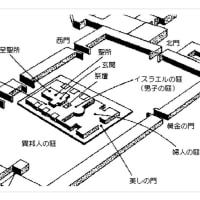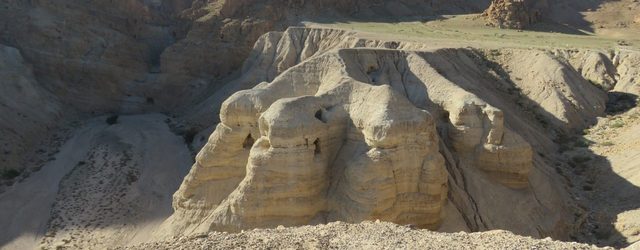7章 ハマンの失脚
1.王の損失
順序からすると二日目の食事の終わりになるのでしょう。三人が酒を交わしてくつろぎ始めた頃、王は再びエステルに願い事をするように語り掛けました。エステルは王の言葉に勇気づけられて口を開きます。「私にいのちを与え…、私の民族にもいのちを与えてください」(3節)。王にとっては、予想もしていなかった訴えであったはずです。
4節の最後の文の意味は、難解です。新改訳(Shinkai-yaku)と新共同訳(Shinkyodo-yaku)では、異なる印象があります。新改訳では、「事実、その迫害する者は、王のお受けになる損失を償うことはできないのですから」と訳され、新共同訳では「王を煩わすほどのことではございませんから、私は黙っておりましょう」となっています。新改訳が「迫害する者」と訳したヘブル語は「迫害者、敵」と訳せるだけではなく、「難儀、困難」とも訳せます。ただその場合は難儀を抱く主体が誰なのかがはっきりしません。また、損失と訳されたことばは旧約聖書ではここにだけ出てくる言葉で、あまりその意味はあきらかではありません。さらに「償う」と訳された言葉は「等しい、匹敵する」とも訳されます。そこで訳者によって、種々の解釈が出て来ることになります。
一つは、新改訳の解釈。「迫害する者」をハマンと受け取り、彼は王に銀一万タラントを納めると儲け話を持ち掛けたが、ハマンはユダヤ人を皆殺しにしようとしているので、王はそれ以上の損失を得る、と解釈するものです。次に、(RSV)Reverse Standard Version(英訳)の解釈。「迫害する者」を「難儀、困難」の意味に、その主体はユダヤ人と取り、ユダヤ人の「難儀」は、王に多大な損失を与えると解釈するものです。つまり、お金よりも人民の魂の重さを訴え、エステルが介入せざるを得なかった事情を説明していると捉えるのです。そして最後に、新共同訳やNew International Versionの解釈。「迫害する者」を「難儀」、意味のよくわからない単語「損失」を「王の悩み」と取り、「償う」を「匹敵」と読み替えます。つまり、その難儀、困難は、王の悩みには匹敵しない、つまり絶滅ではなく売買だけなら、王を煩わせるほどのものではない、と事の重大さを示す意訳です。本当はどう訳すべきなのか、難しいところです。ただ、後の5、6節へのつながりと、3章からの流れ、つまりハマンが王に利益を持ちかけた(3:9)のに対して、エステルは王の損失を訴えた、という対比の構造があると考えれば、新改訳もしくはRSVのようにとるのがよいのかもしれません。
2.王の決断
王は、エステルの訴えに「それは誰か」と激情しました。そして、エステルは、「その迫害する者、その敵は、この悪いハマンです」と答えます。王が酒宴の席を立ちあがります。王は一時の感情の高ぶりを収めようとしたのかもしれません。しかし、命乞いをしようとしたハマンの行動は逆に彼の命とりとなりました。2列王記4:37には、シュネムの女がエリシャの足にすがりついて懇願している様子が描かれています。古代オリエントでは足にすがりつく懇願は、一つの形式でした。エステルのいた長椅子の上にハマンがひれ伏していたというのは、そのような状況を意味したのでしょう。しかしそれは余計に、王の誤解を招くものとなりました。そしてさらに宦官のハルボナのことばによってハマンの罪は確定するのです。「正しい人は苦しみから救いだされ、彼に代わって悪しき者がそれに陥る」(箴言11:8)とされます。ハマンは自ら滅んでいきました。正しく歩む者が揺るがされることはありません。たとえ揺るがされるようなことがあっても、神が、その足を守ってくださるのです。神は真実です。では今日もよき一日となるように祈ります。
<クイズコーナー>
最初に、昨日のクイズです。クセルクセス王がペルシアの王に即位したのは、紀元前何年であったでしょうか?①539年、②486年、③465年、答は②486年でした。ちなみに①538年は、ペルシア帝国のキュロスが新バビロニヤを滅ぼし、イスラエル人にエルサレム帰還を許可した年、③465年はアルタクセルクセス王が即位した年でした。では、今日の聖書クイズです、エステル記の特徴として間違っているものはどれでしょうか?①神の名が一度も出てこない、②女性の名前が書名である。③モーセの律法に定められた祭りの起源を語っている。答えはまた明日。では、今日もよき一日となるように祈ります。
Chapter 7: Haman's Downfall
1. the loss of the king
The order of events would have been at the end of the second day's meal. As the three began to drink and relax, the king again spoke to Esther to make a request. Esther, encouraged by the king's words, opens her mouth. Give me life... and give life to my people" (v. 3). For the king, this must have been an unexpected appeal.
The meaning of the last sentence in verse 4 is difficult to decipher. The New Revised Version (Shinkai-yaku) and the New Common Translation (Shinkyodo-yaku) give different impressions. The New Revised Version translates, "In fact, his persecutors cannot compensate for the loss the king has suffered," while the New Common Translation reads, "It is not worth bothering the king, so I will keep silent. The Hebrew word translated "persecutor" by the New Revised Version can be translated not only as "persecutor, enemy" but also as "difficulty, hardship. In that case, however, it is not clear who is the one who is causing the difficulty. Also, the word translated "loss" appears only here in the Old Testament, and its meaning is not so clear. The word translated "atone" can also be translated "equal or comparable. Therefore, different translators will have different interpretations.
One is the interpretation of the New Revised Version. The New Revised Version takes "the persecutor" as Haman, who offers to pay the king 10,000 talents of silver, but the king loses more than that because Haman is going to kill all the Jews. Next, the interpretation of the (RSV) Reverse Standard Version (English translation). It takes "those who persecute" to mean "difficulty, hardship," and its subject to be the Jews, and interprets the "hardship" of the Jews to mean that the king will lose a great deal of money. In other words, they take it as appealing to the weight of the people's souls rather than their money and explaining the circumstances that compelled Esther to intervene. And finally, the interpretation of the New Common Translation or New International Version. The word "persecutor" is taken as "difficulty," the word "loss" is taken as "king's trouble," and "atonement" is read as "equal. In other words, the difficulty or hardship is not comparable to the king's trouble, meaning that if it is not extinction but only a sale or purchase, it is not enough to bother the king, indicating the seriousness of the matter. It is difficult to know how it should be translated. However, if we consider the connection to verses 5 and 6 below, as well as the flow from chapter 3, i.e., the contrast between Haman's offer of profit to the king (3:9) and Esther's complaint of the king's loss, it may be better to take the New Revised Version or the RSV.
2. the king's decision
The king was furious at Esther's complaint, "Who is it? And Esther replies, "The one who persecutes her, her enemy, is this wicked Haman. The king leaves the banquet table. The king may have been trying to calm his emotions for a moment. However, Haman's attempt to beg for his life proved fatal to him, as 2 Kings 4:37 depicts the Shunemite woman clinging to Elisha's feet in supplication. In the ancient Orient, pleading to hang on to one's feet was a form of entreaty. The fact that Haman was prostrating himself on the couch where Esther was probably signified such a situation. But that was, moreover, misleading to the king. And furthermore, Haman's guilt was confirmed by the words of the eunuch Harbona: "The righteous man shall be delivered from suffering. The righteous man will be delivered from suffering, and in his place the wicked will fall" (Proverbs 11:8). Haman himself perished. The righteous will not be shaken. Even if he is shaken, God will protect his feet. God is true. I pray that today will be another good day.
<Quiz Corner
First, yesterday's quiz. In what year was Xerxes crowned king of Persia? The answer is (1) 539, (2) 486, (3) 465, and the answer is (2) 486. Incidentally, (1) 538 was the year Cyrus of the Persian Empire destroyed New Babylonia and allowed the Israelites to return to Jerusalem, and (3) 465 was the year King Artaxerxes ascended the throne. Now for today's Bible quiz, which of the following is a wrong characteristic of the Book of Esther? (1) The name of God is not mentioned once, (2) A woman's name is the name of the book. (3) It speaks of the origin of the festivals prescribed in the Law of Moses. I will give you the answer tomorrow. Now, I wish you a good day.


















